第21章
The same Answer may be given to these who think an Addition to the Money of any particular Country would undervalue it so, that the same Quantity of Goods would cost double the Money as before.
If the Money and Credit current in England be 15 Millions, Scotland reckon'd as 1 to 10, the Money in Scotland encreas'd to a Million and a half, the Demand in proportion to the Demand in England;that Addition to the Money of Scotland, would not make Money of less Value here, than it is now in England. Goods in Scotland would Sell as they Sell in England, the Product of the Country would perhaps be 10or 20 per cent dearer, to bring it equal to what it Sells in England;but all sorts of Manufacture would be cheaper, because in greater Quantity: And all Goods Imported would be cheaper, Money being easier borrowed, Merchants would deal for a greater Value, and Men of Estates would be capacitate to Trade, and able to Sell at less Profit. Now would Land rise higher than in England, the Buyer having in his choice to Buy elsewhere; the better Security of a Register may be suppos's to add a Years Purchase or two to the Value.
If the Money of an particular Country should encrease beyond the proportion that Country bears to Europe; it would undervalue Money there, or, according to the way of speaking, it would raise Goods: But as Money would be undervalued every where the same, or near to waht it were there; it would be of great Advantage to that country, tho thereby Money were less valuable: For that Country would have the whole Benefit of the greater Quantity, and only bear a share of the lesser value, according to the proportion its Money had to the Money of Europe. When the Spaniards bring Money or Bullion into Europe, they lessen its value, but gain by bringing it; because they have the whole benefit of the greater Quantity, and only bear a share of the lesser value.
What has been said, proves, 1st. That Silver Money is an uncertain value; because lyable to be alter'd in the Fineness or Denomination by the Prince. A Crown has no more Silver in it than half a Crown or 15 Pence had a 150 or 200 Years ago.
2ndly. That as Silver it has fallen from the Value it had, the same Quantity not being worth the 5th or 10th part of what it wasworth then. A Money'd Man then worth a 1000 lib. was Richer at that time than a Landed Man of 240 Chalder of Victual Rent: But a Man of such a Money Estate, would not now be worth one 50th part of such a Land Estate.
3dly. That tho fallen so much, yet it is given as Money or Sold as Bullion, for much more than its Value as a Mettal; to which it will be reduced, so soon as another Money is set up.
Considering the present state of Europe, France and Spain being Masters of the Mines. The other Nations seem to be under a necessity of setting up another Money. The only Reason can be given why it has not been rightly understood: Or they would not have continued buying Silver from Spain above its Value as a Mettal, when they had a more valuable Money of their own, and every way more fitted for that Use.
The Receiver of Silver can have no great hopes that the Value of it will be greater; For 'tis not to be supposed it will be apply'd to any other Uses, than it is now apply'd to, whereby the Demand for it may be encreas'd: Or that the Quantity Exported and Consum'd, will be greater than the Quantity Imported.
Tho it be scarce in any particular Country, yet the Mony'd Men will have no great Benefit by such scarcity, as has been shown: For unless the scarcity is the same in all places with which that Country Trades, Money will not be valued much higher there than in other Countries.
If it is alledged the Mines in the West-Indies may fail. 'Tis the Interest of the Spaniards to give out that their Mines begin to fail, to keep up the Price of Silver; but if that were true, France ought not have engaged her self in a War, when by the Partition Treaty she could have got any other parts of that Monarchy that are valuable.
Allowing the Mines do fail, we ought the rather to provide our selves with another Money.